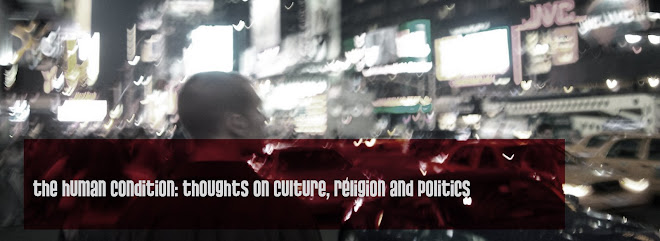"[Jesus]: Wilt thou refuse to do this for me? You have become my Spouse for my love... Are you afraid to take one more step for Your Spouse- for me- for souls?... Am I a second to you?
[Teresa]: Jesus, my own Jesus- I am only thine- I am so stupid- I do not know what to say but do with me whatever You wish-...
[Jesus]: You are I know the most incapable person- weak and sinful but just because you are that- I want to use You for My glory. Wilt thou refuse?"
"God- please forgive me- When I try to raise my thoughts to Heaven- there is such a convicting emptiness that those very thoughts return like sharp knives and hurt my very soul. -I am told God loves me -and yet the reality of darkness and coldness and emptiness is so great that nothing touches my soul. Did I make a mistake in surrendering blindly to the Call of the Sacred Heart?"
On my way home from Chicago I read an article in TIME about the new Mother Teresa book that chronicles her 50 year faith crisis. Honestly, I expected it to be boring, but to my surprise the article was captivating, thought-provoking, inspiring and convicting. It called to my attention the issue of suffering and how little of value American Protestants place on it.
When I was little I remember my mother explaining to me that Catholics had all these crucifixes in their churches, but what they need to realize is that Jesus rose from the dead. Her point was that Jesus' death is only part of the story, and that the most important part is the resurrection. Along with that I was taught that Catholics believe salvation comes through works. These sentiments, while they have some validity, have been deeply ingrained in me, and those that grew up with similar faith backgrounds. What this article forced me to do was assess suffering as it relates to the gospel, question what the emphasis on the resurrection and de-emphasis on Christ's suffering- as well as, the emphasis of salvation by faith- has done to American evangelicalism, and think about how much suffering should be a part of Christian orthopraxy.
Part of the TIME article is devoted to shedding light on why Mother Teresa (MT) sunk into spiritual darkness throughout her entire ministry. The atheist response, of course, is that MT simply realized that religion is a human creation, and much of her life was spent in a state of perpetual denial. The psychologist's response is that she inflicted it upon herself. I imagine that much of the anti-Catholic stream of Protestantism would probably say, "See, I told you she wasn't really a Christian, and that she didn't have a relationship with God." I found the Catholic response, however, to be the most beautiful, compelling and hopeful.
Rev. Brian Kolodiejchuk, the editor and compiler of Come Be My Light explains MT's desire to drink ONLY from, "Christ's chalice of pain." The article goes on to say that MT's desire was fulfilled, and later suggests that God allowed MT to suffer the deepest anguish Christ experienced on the cross- God's absence. From my own reading, I understand that Catholics believe that suffering purifies. Now, while I believe that a Christian is a new creature, I would agree with the Catholic sentiment that rejoicing in our suffering for others brings us closer to imaging Christ. Part of the gospel is that Christ served and suffered for a world he loved, and that being his follower means learning to do the same. And that when we suffer joyfully for others, Christ's image is reflected, and the gospel is extended.
No doubt, Christ's victory over death is central to the gospel, but in order for Christ to be resurrected he first had to suffer and die. In de-emphasizing the role of suffering and sacrifice, and putting all the emphasis on "the good stuff," I would argue we have neutered the gospel and stripped the Kingdom of it's power. In many circles the gospel has been reduced to, "Christ did all the hard stuff; just believe and you're on your way to heaven." This gospel goes right a long with the American lifestyle, which also seems to avoid the suffering that a lot of the rest of the world goes through. Indeed, I and most everyone I know live a pretty kooshy life. I don't necessarily think this is an evil in and of itself, but I think that maybe this means we need to go out of our way in order to serve, sacrifice and suffer because the gospel is best shared by someone who looks like Jesus suffering and dying for those he loves.
Practically, those of us who don't find many opportunities to suffer, I think, should seek them out. Whether that means going out of our comfort zone, giving up a seat for others on the bus, volunteering in a poor neighborhood, living in a poor neighborhood, or simply thanking God for the rare occasions we do get to suffer. I don't condone everything I read in the article. I only mean to point out something I think that Protestant Christians could learn from Catholics. And whether or not any of the previously mentioned explanations for MT's faith crisis are true, I think we should all, in whatever way, partake in Christ's passion.
